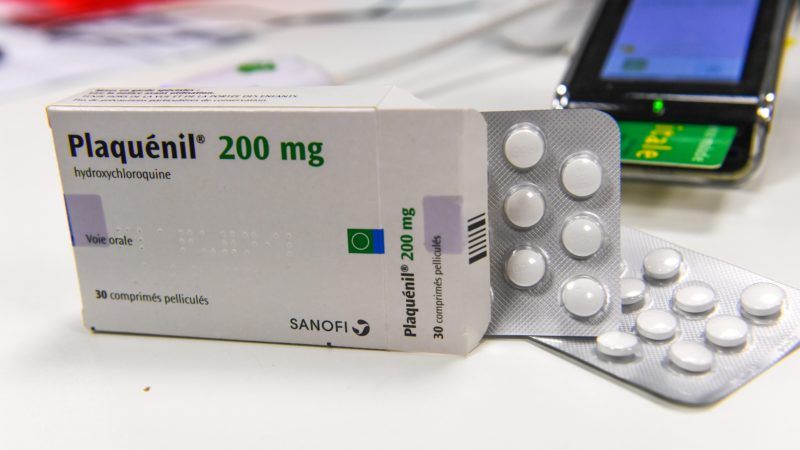FDA Approves Emergency Use of Hydroxychloroquine and Chloroquine to Treat COVID-19
The agency concludes that the possible benefits outweigh the risks.

Anecdotal evidence has suggested that the anti-malaria drugs chloroquine and hydroxychloroquine may be effective therapies for the coronavirus infections that are the cause of COVID-19. (Other data have questioned their efficacy as COVID-19 therapies.) President Donald Trump touted chloroquine as a treatment for the disease during a press conference on March 19. At that same press conference, Food and Drug Administration (FDA) Commissioner Stephen Hahn observed, "That's a drug that the president has directed us to take a closer look at as to whether an expanded use approach to that could be done and to actually see if that benefits patients."
The agency has evidently taken a closer look and has issued an emergency use authorization (EUA) for both compounds as experimental treatments for COVID-19. The EUA notes:
Based on the totality of scientific evidence available to FDA, it is reasonable to believe that chloroquine phosphate and hydroxychloroquine sulfate may be effective in treating COVID-19, and that, when used under the conditions described in this authorization, the known and potential benefits of chloroquine phosphate and hydroxychloroquine sulfate when used to treat COVID-19 outweigh the known and potential risks of such products.
Health care providers are authorized to use the compounds to treat hospitalized adolescent and adult COVID-19 patients weighing more than 110 pounds for whom no clinical trial is available or feasible. The recommended treatment regimen for hydroxychloroquine is 800 milligrams on the first day followed by 400 milligrams daily for four to seven days of total treatment based on clinical evaluation. The recommended treatment using chloroquine is 1 gram of the compound on day one, followed by 500 milligrams daily for four to seven days of total treatment based on clinical evaluation.
Health care providers must watch for side effects and are required to report how their patients fare to the FDA.
Ongoing clinical trials along with these EUA treatments should fairly quickly determine whether these compounds will work against the disease. Let's hope they do.


Show Comments (48)